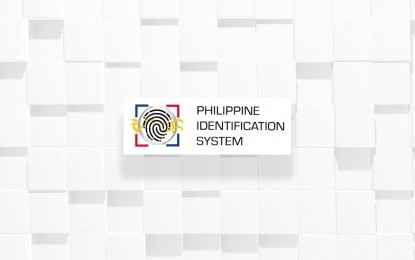
DAVAO CITY — Filipinos hesitant about applying for a Philippine Identification System (PhilSys) or PhilID due to information security issues should take comfort in the "sufficient safeguards" to ensure the privacy of the PhilID holder.
This was reiterated by the Philippine Statistics Authority (PSA) in a recent website post, assuring the public that the PhilID is uniquely designed in such a way that the holder's information is "preserved and protected."
Under the Philsys registration system, a registrant is required to give his demographic information in Step 1.
The information includes name, address, birth date, blood type. Other optional information are also asked, such as marital status, contact numbers, and other personal details.
Some Filipinos have expressed fears that in the event of a data breach, their life and that of their family may be put in danger.
Based on the PhilSys Act, PSA said it is mandated to ensure the data privacy and security of the information being uploaded in the PhilSys.
“The PSA takes seriously the responsibility of ensuring the privacy, security, and integrity of registered persons’ data. Sufficient safeguards shall be in place to ensure information security, cybersecurity, data protection and privacy, including in compliance with the Data Privacy Act,” the PhilSys Act reads.
According to PSA, preparations for PhilSys are extraordinary because aside from being a lifetime ID, it is unique in the sense that government and private sectors would not anymore demand for any other IDs from a client.
If a holder shows a PhilID, all transactions would follow smoothly, PSA assured.
“The PSA has been working closely with the National Privacy Commission (NPC), the DICT (Department of Information and Communications Technology), and the National Security Council regarding the architecture and processes of the PhilSys, including to identify and mitigate privacy and cybersecurity risks,” PSA said.
PSA further assured that the PhilSys design adopts the "privacy by design principles."
"This would mean that privacy of the information is incorporated its technologies by default and from the start.” For example, the PhilSys collects and stores minimal data and the PhilSys Number (PSN) is fully randomized, not revealing any information about the person such as their date of birth," the agency added.
The PhilSys is meant to provide Filipino citizens and foreign residents in the Philippines a single and unified proof of identity to ease public and private transactions and deter criminality.
Signed into law by President Rodrigo R. Duterte in August 2018, Republic Act 11055, or the Philippine Identification System Act, aims to establish a single national ID for all Filipinos and resident aliens.
The national ID shall be a valid proof of identity that shall be a means of simplifying public and private transactions, enrollment in schools, and the opening of bank accounts.
It also seeks to boost efficiency, especially in dealing with government services where people will only need to present one ID during transactions. (PNA)
